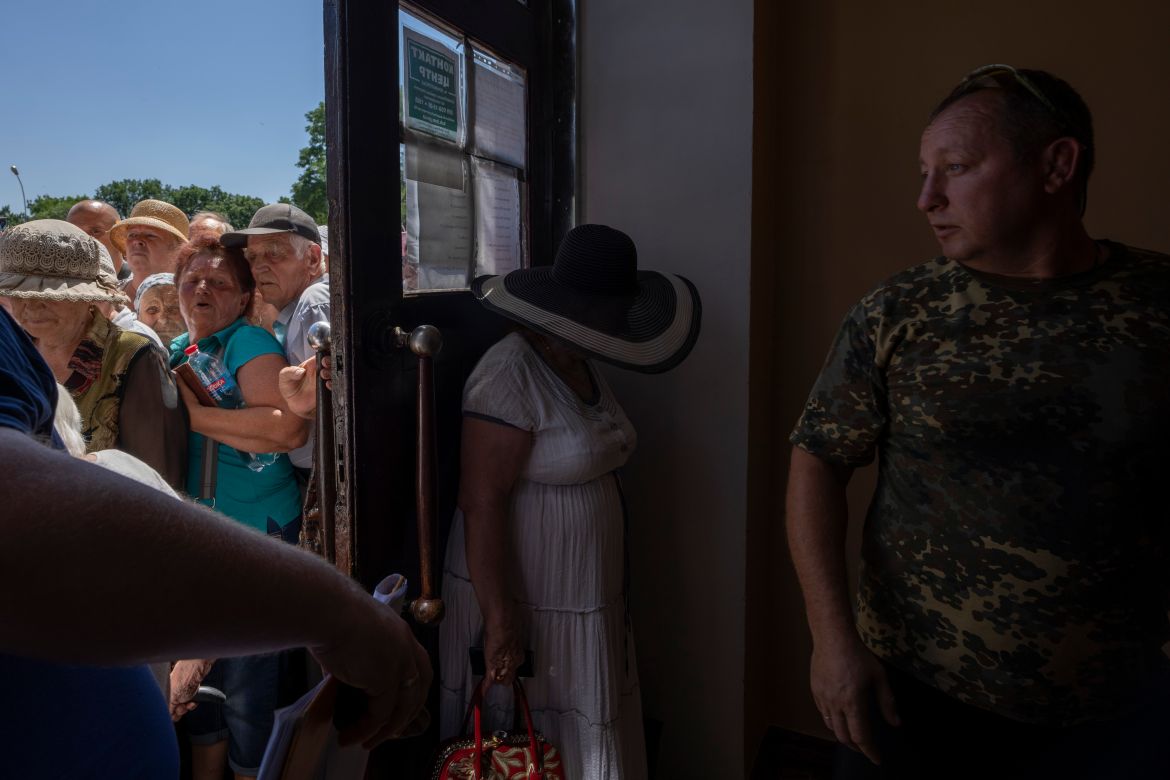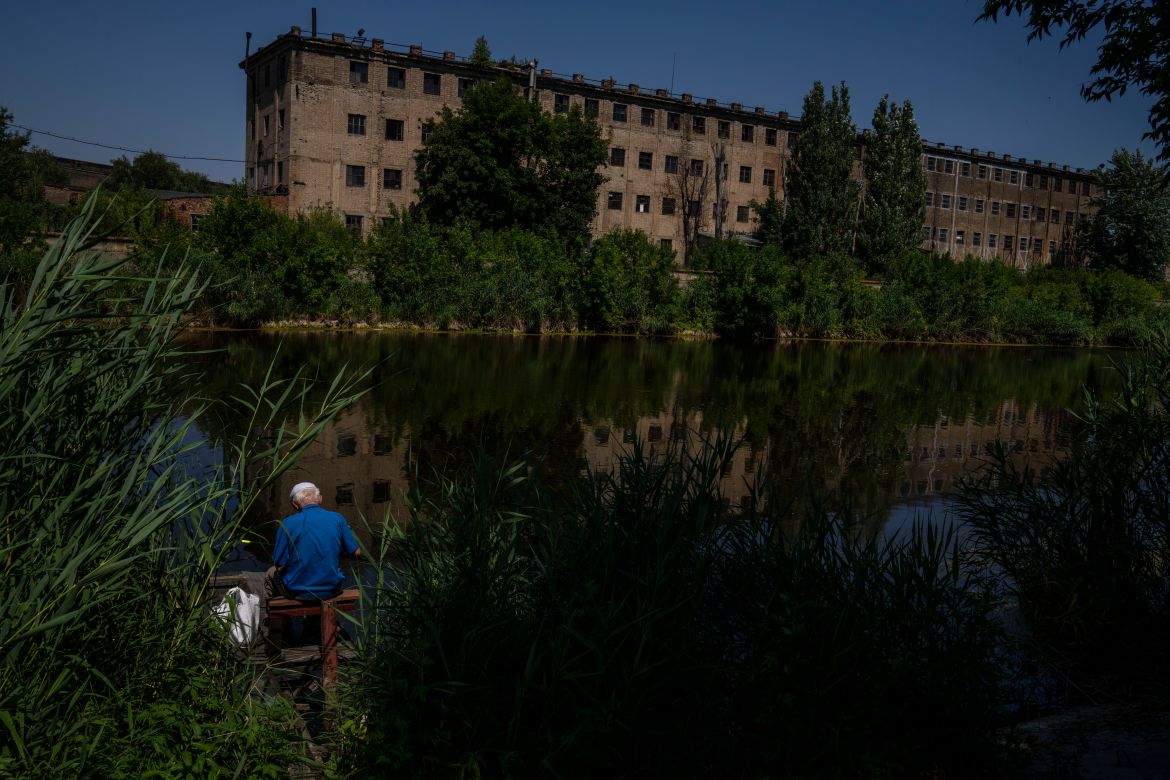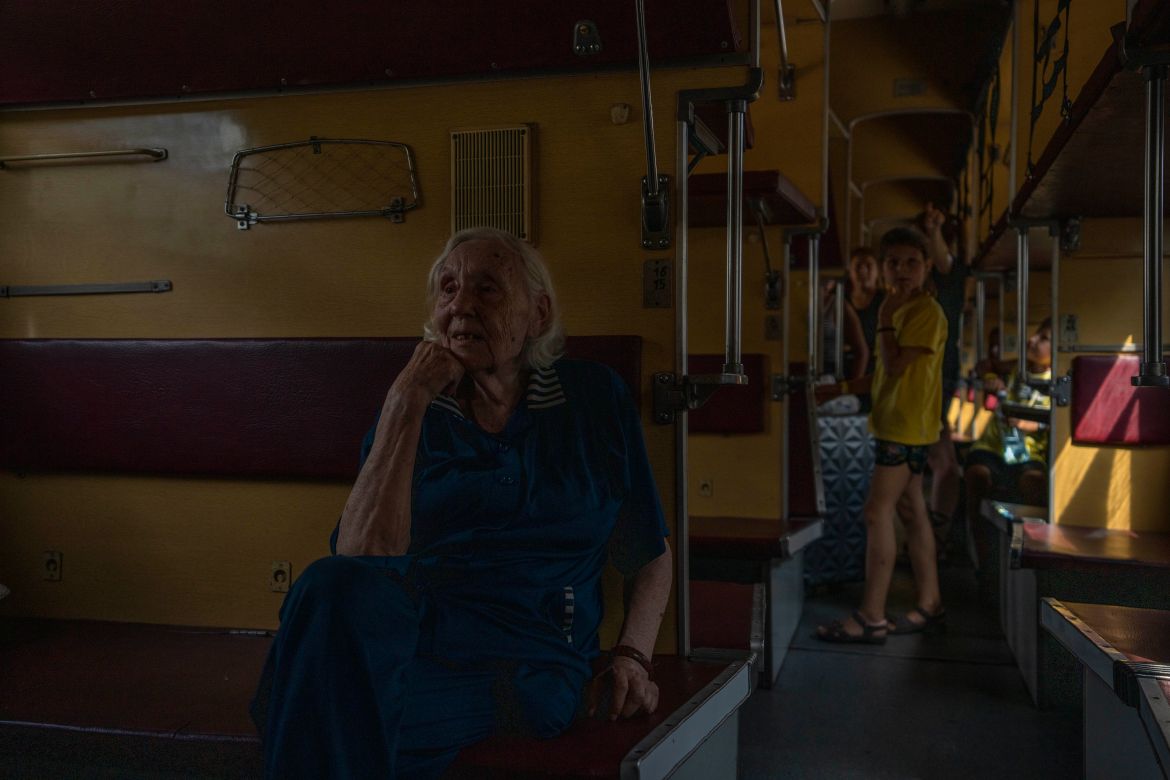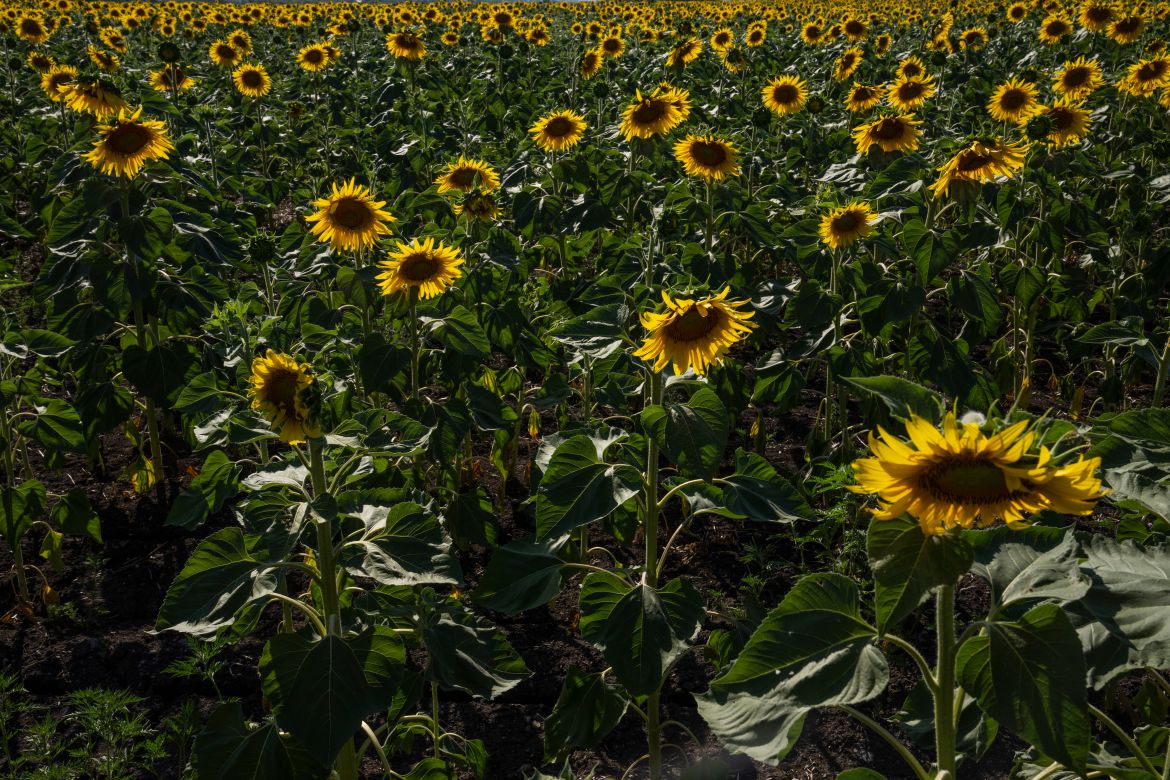In Pictures
Photos: Some Ukrainians can’t flee areas in crosshairs of war
For many, the urge to stay is strong, because they are retirees or have low incomes.
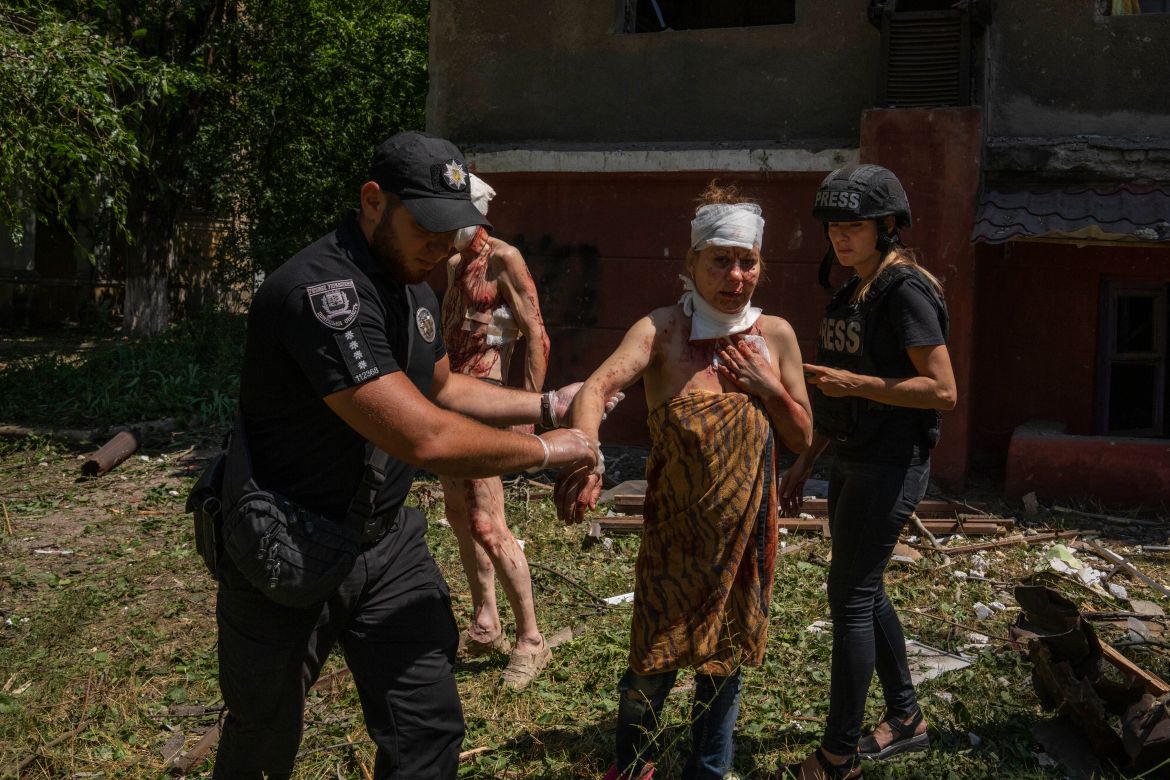
Burned-out cars and splintered trees smoulder in the aftermath of a missile strike on Kramatorsk, a city in eastern Ukraine. A body lies on the ground, covered by a sheet. Wounded residents sit dazed and covered in blood. A crater has been gouged in the centre of a once-calm, sunlit courtyard.
Across the beleaguered city, Valerii Ilchenko sits under the shade of the trees, working on a crossword puzzle. The 70-year-old widower now has difficulty walking, and this daily ritual in the fresh air gets him through the day.
The governor of Donetsk province urged its 350,000 remaining residents to move to safer places in western Ukraine. But like many other civilians who have come under fire in the nearly five-month-old war, Valerii has no intention of leaving, no matter how close the fighting gets.
“I don’t have anywhere to go and don’t want to, either. What would I do there? Here at least I can sit on the bench, I can watch TV,” said Valerii.
Since the war began, Valerii has been unable to call his son and grandson, who live in Moscow. Although he is still somewhat self-sufficient, Valerii is nearly immobile. Volunteers make sure he gets regular deliveries of bread, water and cigarettes; neighbours call in from time to time.
As he spoke, an air raid siren wailed. But Valerii smiled and shrugged.
“Where would I run to when the sirens start? I have no basement, so where? In this building, we all stay right here,” he said.
In urging the evacuation, Donetsk Governor Pavlo Kyrylenko said it would allow the Ukrainian army to better defend towns, adding that about 80 percent of the region had departed.
Yet for many, the urge to stay is strong, because they are retirees or have incomes so low that they fear they cannot support themselves away from what Kyrylenko called their “comfort zone”.
Others worry they will not be welcome in western Ukraine, a concern based on a perception that some of their countrymen resent the predominantly Russian-speaking easterners and blame them for the war.
A few harbour pro-Moscow sympathies, either from nostalgia for their Soviet past or from watching Russian state TV. Still others do not believe their lives will change significantly under a Russian or a Ukrainian flag.
Sloviansk Mayor Vadym Liakh said that whatever the motivations are for those who stay, “we see that when their homes are ruined, having only the slippers on their feet with one plastic bag, they leave. They do not think about the money.”
Like Valerii, Maria Savon, 85, has no plans to leave Kramatorsk.
“Why should I leave? Where one is born, one must die. This is our land. We are not needed there, from time immemorial. Old people, as far as I know, even ask for their native earth before they die,” said Maria.
She said she wants to live in a country ruled by Ukrainians, not Russians, but she also is suspicious of the West. She wants President Volodymyr Zelenskyy to cut ties with Europe and United States President Joe Biden, and agree to a ceasefire with Moscow.
A retiree fishing on the Kazennyi Torets river said he loves his hometown but is too old to fight.
“Of course, it would be a shame to leave. Without the apartment, what would I leave my children? We will wait until this ends,” said the man, who identified himself only as Viktor for fear of reprisal.
The streets of Kramatorsk are eerily quiet. Most shops have closed and the last working cafés are boarded up. This once-vibrant city with a pre-war population of about 150,000 is mostly empty in anticipation of the Russian advance.






